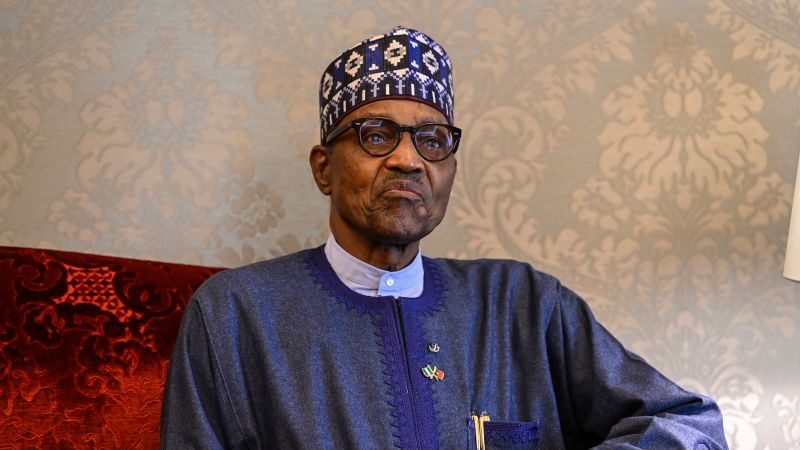Former Nigerian President Muhammadu Buhari has passed away at the age of 82, according to a statement from the presidential press office on Sunday. Buhari died in London at approximately 16:30 local time following a “prolonged illness.” In response to this news, Nigeria’s current president, Bola Ahmed Tinubu, expressed his condolences to Buhari’s family and directed his vice president to travel to the United Kingdom to facilitate the return of Buhari’s body to Nigeria.
Buhari served as president from 2015 to 2023, after a long career marked by military and political service. He was first elected following three unsuccessful attempts. His leadership was characterized by a strong anti-corruption agenda, particularly in a nation often described as “fantastically corrupt” by former British prime minister David Cameron. Buhari’s commitment to battling corruption was a central theme of his administration.
Military and Political Background
Born in December 1942 in Daura, Katsina State, Buhari completed military training in various locations, including Kaduna, Great Britain, India, and the United States. He first gained political prominence in 1975 after a military coup ousted then-ruler Yakubu Gowon. Subsequently, Buhari was appointed military governor of Borno State, a region heavily affected by the Boko Haram insurgency.
His initial foray into the presidency began with a military coup in 1983, which was followed by a two-year regime until his overthrow in another coup. His return to power in 2015 marked a significant chapter in Nigeria’s political landscape, as he campaigned vigorously against corruption and sought to address widespread security issues, including the persistent threat from Boko Haram in northeastern Nigeria.
Legacy and Impact
Buhari’s tenure as president saw both achievements and challenges. While many praised his tough stance against Boko Haram, his administration faced criticism for its handling of economic difficulties and rising insecurity in various regions. His commitment to improving national security and rooting out corruption will likely define his legacy.
As Nigeria mourns the loss of a prominent leader, Buhari’s contributions to the nation’s political discourse and his efforts to combat corruption will be remembered. His passing marks the end of an era for Nigeria, and the nation’s leadership is now tasked with reflecting on his policies and the direction forward in the wake of his death.
